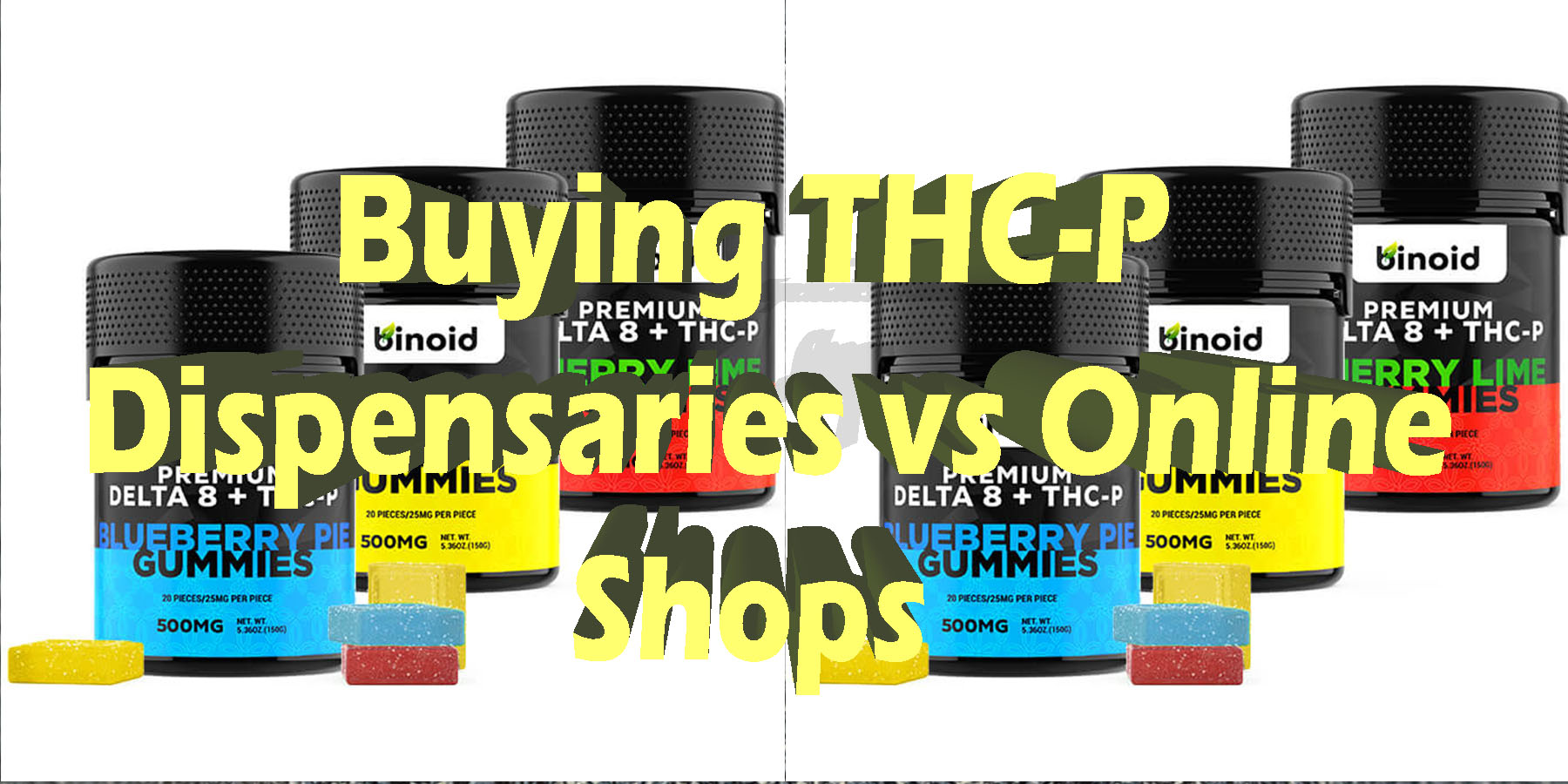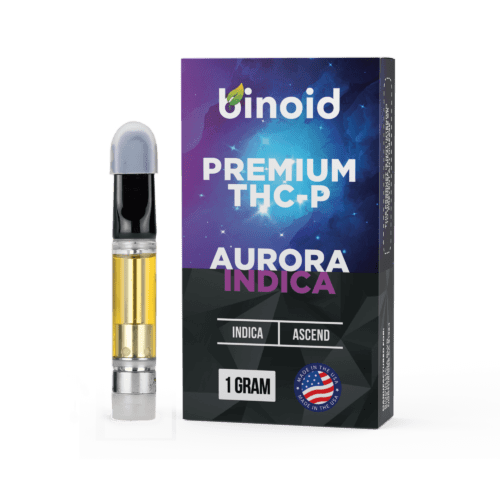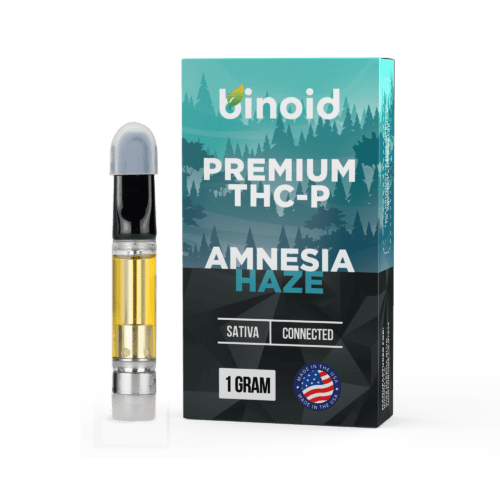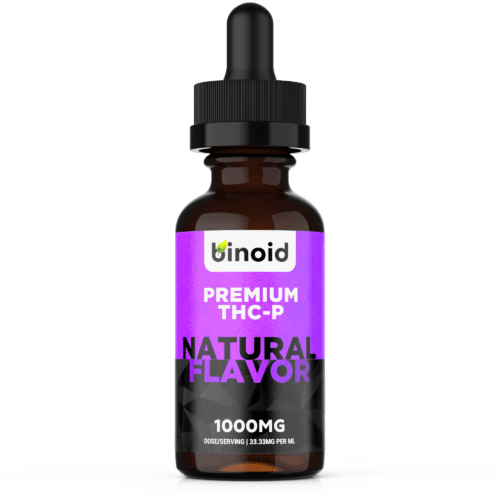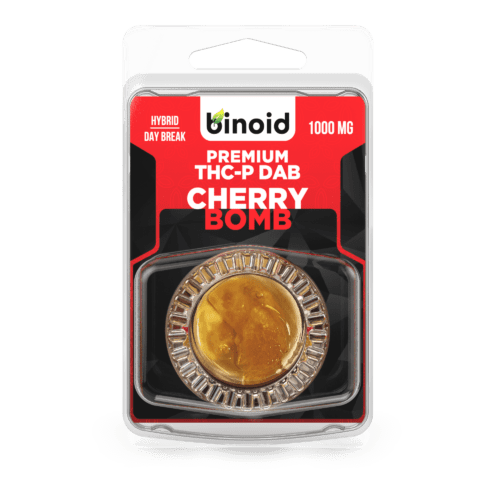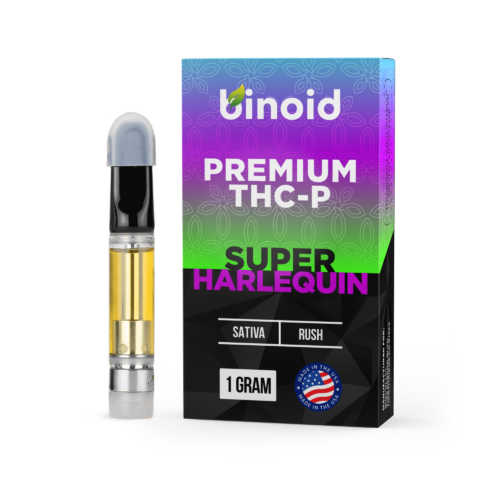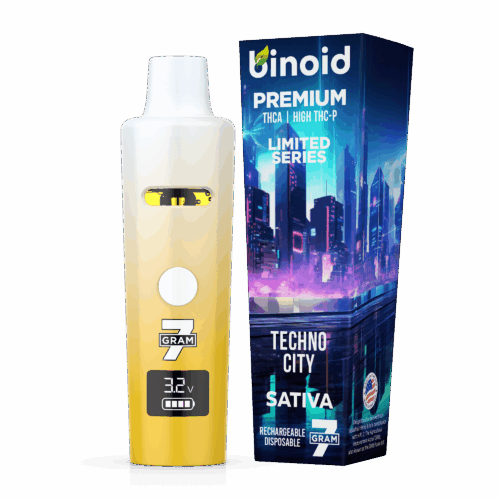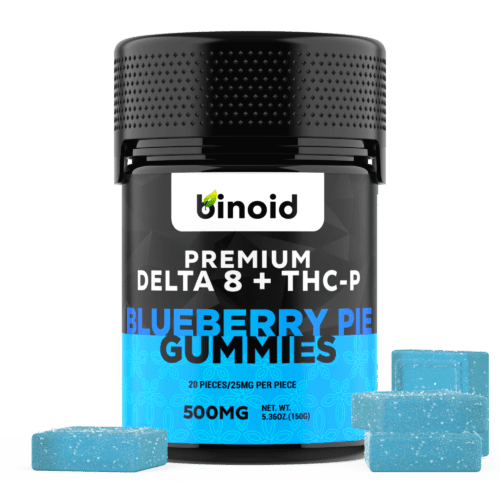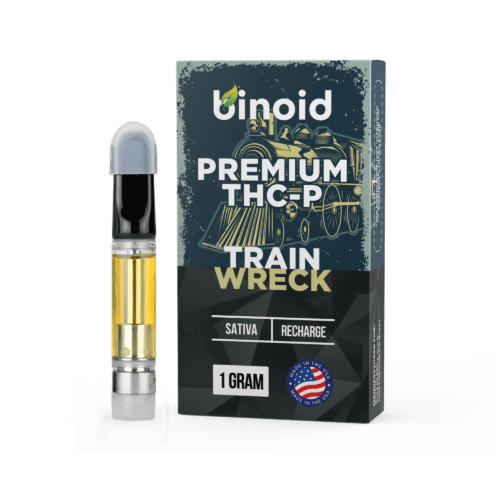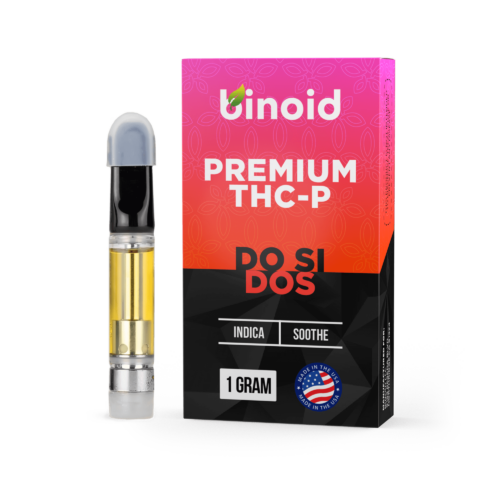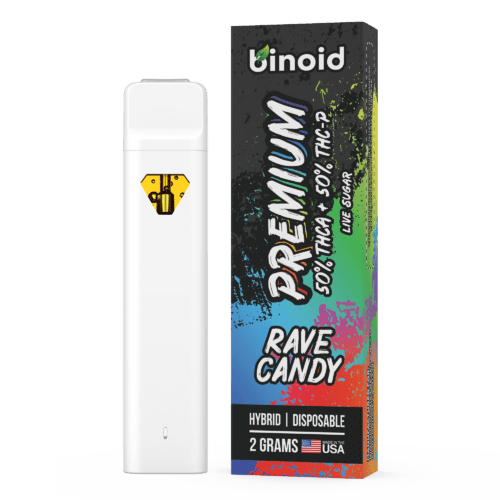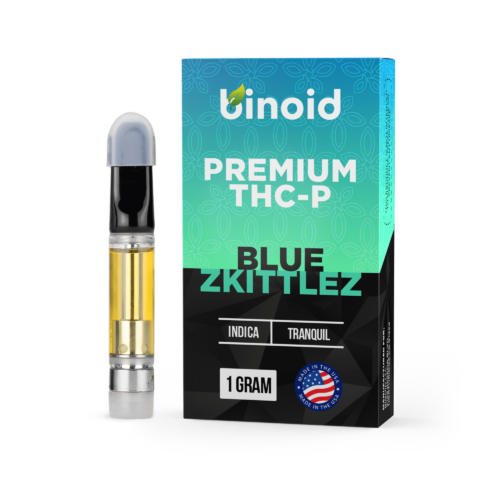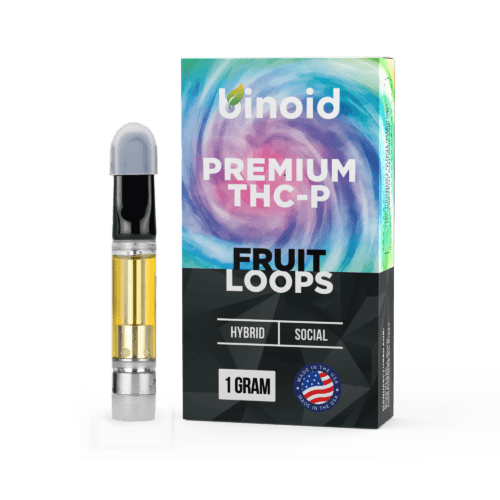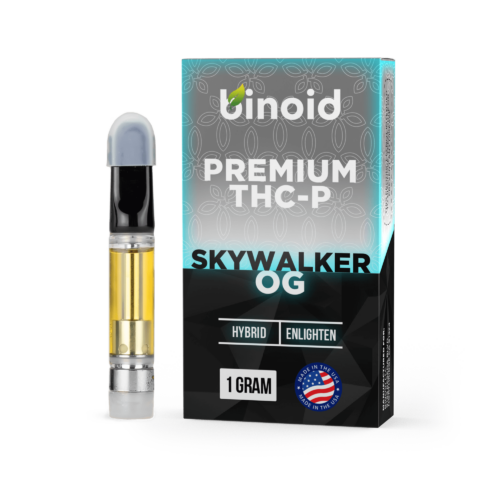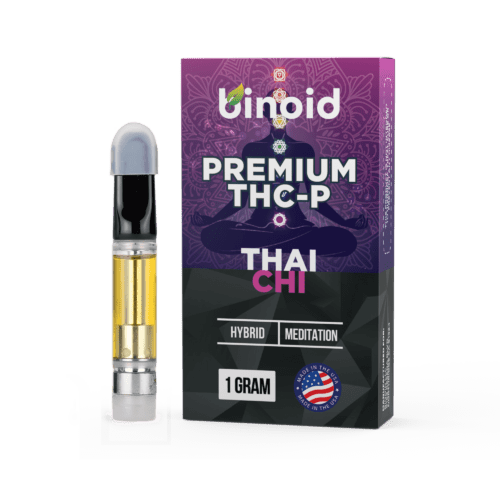In the ever-evolving tapestry of cannabinoids, new and intriguing compounds periodically step into the limelight, capturing the attention of both seasoned enthusiasts and the curiously initiated. With that being said, THC-P is one such molecule that has recently generated considerable buzz, primarily owing to its remarkable interaction with the human body. As interest in THC-P escalates, so too does the fundamental question of where one might responsibly and effectively procure it.
You see, within the United States, consumers typically find themselves navigating a choice between the established, tangible world of physical dispensaries and the expansive, ever-present domain of online cannabis and hemp retailers. This decision is far from trivial, as it significantly shapes the purchasing experience, and a clear understanding of each avenue is the first step toward an informed choice.
TO BUY THC-P PRODUCTS CLICK HERE
Recommended products
Getting to Know Cannabis Dispensaries and Online Cannabis/Hemp Shops and Their Purposes
Before we discuss the nuances of acquiring a specific cannabinoid like THC-P, it’s valuable to establish a foundational understanding of the two predominant retail environments serving consumers within the broader cannabis and hemp industry. Why? Well, because both the traditional brick-and-mortar dispensaries and the increasingly prevalent virtual online shops play distinct, yet occasionally overlapping, roles in facilitating access to a wide array of cannabis and hemp-derived compounds and their associated product forms.
Each operates under a unique business model, cultivates a different consumer atmosphere, and employs varied approaches to customer engagement, all of which are profoundly shaped by the dynamic interplay of state and federal regulations and shifting consumer expectations.
Understanding Cannabis Dispensaries and Their Purpose
The physical layout and design of dispensaries can exhibit considerable variation, encompassing everything from sleek, modern boutiques that evoke a high-end retail sensibility to more utilitarian, clinical settings focused on straightforward product access. Irrespective of their particular aesthetic, all licensed dispensaries are engineered with paramount attention to security protocols and strict regulatory adherence, commonly featuring controlled entry systems where staff rigorously verify age and, if required, medical cannabis patient status, before permitting customers onto the main sales floor where products are displayed.
Once granted access to the core retail area, patrons typically encounter well-organized display cases showcasing a diverse range of products, which are often meticulously categorized by type—such as cannabis flower, various forms of edibles, potent concentrates, liquid tinctures, and topical applications. The prevailing atmosphere within a dispensary is generally curated to be both welcoming and highly informative, with trained and knowledgeable staff members, often known as “budtenders,” readily available to guide customers through the extensive selection process.
These frontline employees are expected to possess a comprehensive understanding of the dispensary’s product inventory, including detailed knowledge of cannabinoid profiles, potential experiential effects, and appropriate usage guidelines, thereby assisting patrons in making well-informed choices that align with their specific preferences and intended outcomes. The inherent design of these physical spaces encourages direct interaction, allowing for a more tactile and personalized shopping experience.
The overarching purpose of a cannabis dispensary extends significantly beyond the mere commercial transaction of selling goods; it also fulfills a vital role as a community hub for reliable information and, in numerous localities, stands as a tangible symbol of the evolving legal and societal acceptance surrounding cannabis. Dispensaries are entrusted with the critical responsibility of ensuring that every transaction strictly complies with all pertinent state and local statutes, which can include precise limitations on permissible purchase quantities, highly specific packaging and labeling mandates, and thorough tracking and reporting of all sales for stringent regulatory oversight.
This unwavering dedication to a comprehensive and exacting regulatory framework is a defining feature of all licensed dispensaries, as they endeavor to provide a safe, secure, and unambiguously legal channel for cannabis access while actively preventing any diversion of products to unregulated or illicit markets.
Furthermore, dispensaries frequently make substantial contributions to consumer education by offering a wealth of resources, including informational brochures, detailed product guides, and personalized consultations, all designed to help individuals better understand the multifaceted world of cannabis and its various constituents. This educational commitment can prove particularly invaluable for individuals who are new to cannabis entirely or those who are cautiously exploring unfamiliar cannabinoids, such as THC-P, or novel consumption methods for the very first time.
By cultivating a controlled, professional, and consistently informative environment, dispensaries actively work to destigmatize the use of cannabis and vigorously promote responsible consumption habits among their diverse clientele, effectively serving as the primary interface between legal cannabis cultivators, innovative product manufacturers, and the end-users within a highly structured and closely monitored system.
Recommended products
Understanding Online Cannabis/Hemp Shop and Their Purpose
An online cannabis or hemp shop functions as a digital e-commerce platform, offering consumers the significant convenience of Browse, selecting, and purchasing a wide array of hemp-derived products for secure and direct delivery to their homes or specified addresses. In stark contrast to traditional physical dispensaries, these internet-based retail operations are not geographically constrained in the same manner, which allows them to potentially connect with a substantially broader customer base, frequently spanning across state lines, provided that the products offered strictly adhere to all relevant federal and individual state laws, particularly those pertaining to hemp-derived cannabinoids that must comply with the <0.3% Delta-9 THC threshold.
The “physical structure” of such an enterprise is its meticulously designed website or dedicated mobile application, engineered for intuitive user navigation, seamless product discovery, robust search capabilities, and fortified, secure transaction processing, often enriched with comprehensive product descriptions, high-resolution imagery, authentic customer reviews, and valuable educational content such as blogs and FAQs.
The core mission of an online hemp shop is to deliver unparalleled convenience, maintain customer discretion, and provide broad access to an extensive and diverse selection of hemp-derived products. These digital businesses can operate through several distinct models: some are established as direct-to-consumer (DTC) brands, meaning they conceptualize, develop, manufacture, and exclusively retail their own proprietary line of products via their dedicated online portal, thereby ensuring meticulous control over the entire lifecycle from raw material sourcing and quality assurance to final product branding and customer experience.
Conversely, other online shops adopt a marketplace model, acting as curated platforms that feature and sell products from a multitude of different third-party brands, thus offering consumers a significantly wider comparative selection and the ability to explore various manufacturers, product formulations, and price points all within a single, unified virtual environment.
These digital retailers consistently prioritize the optimization of the overall customer journey through the implementation of sophisticated, user-centric web design, the provision of exhaustive and transparent product details, and the maintenance of highly responsive and adept customer support services, which are often readily accessible through integrated live chat functionalities, dedicated email support teams, or direct telephone helplines.
Substantial investments are routinely made in advanced, multi-layered secure payment gateway systems and carefully considered discreet, unbranded packaging solutions to rigorously protect customer privacy and ensure complete satisfaction upon product delivery. Furthermore, a defining characteristic of most reputable online hemp retailers is their proactive emphasis on fostering transparency and building consumer trust by prominently displaying comprehensive third-party laboratory test results, universally known as Certificates of Analysis (CoAs), directly on individual product pages or through an easily navigable, dedicated section of their website.
Ultimately, online cannabis and hemp shops are architected to simplify and enhance the entire purchasing process, making it as fluid, informative, and efficient as possible for a contemporary clientele that increasingly prioritizes convenience, extensive product choice, and the inherent flexibility to shop from any location at any given time. They adeptly employ advanced digital marketing techniques, sophisticated search engine optimization (SEO) strategies, and a wealth of engaging educational content to effectively identify, attract, and inform their target demographic, thereby playing an instrumental role in augmenting the general accessibility and contributing to the wider societal normalization of federally legal hemp-derived cannabinoids across such a diverse landscape.
Their operational success is fundamentally predicated upon principles of exacting logistical execution, utilization of cutting-edge e-commerce technologies, dynamic inventory management systems, and a deep, continually refreshed understanding of the complex and perpetually evolving legal, regulatory, and market dynamics that govern the sale and distribution of all hemp-based products.
Recommended products
Exploring the Powerful Cannabinoid Known as THC-P
Having established a clearer understanding of the retail environments where cannabis and hemp products are typically sourced, our exploration now focuses on a particularly intriguing cannabinoid that has rapidly garnered significant attention for its distinctive properties: Tetrahydrocannabiphorol (THC-P) – a naturally occurring albeit often rare phytocannabinoid, shares a structural resemblance to the well-known Delta-9 THC but possesses unique molecular characteristics that’re thought to dramatically influence its interaction with the endocannabinoid system (ECS). Its discovery has opened new avenues for research and has piqued the curiosity of consumers seeking to understand the diverse spectrum of experiences that different cannabinoids may offer.
THC-P’s emergence onto the market is often linked with reports of profound effects, distinguishing it significantly from many other cannabinoids and making it a focal point of discussion and investigation within the cannabis science community and among experienced users alike. The distinctive nature of THC-P necessitates a careful approach to understanding its profile, from its chemical makeup to the way it is presented in consumer products.
The history of THC-P is relatively recent, marking it as one of the newer cannabinoids to be identified and studied, which contributes to its mystique and the burgeoning interest surrounding it. It was first isolated and characterized in late 2019 by a team of Italian researchers who were analyzing a specific cannabis strain (FM2). This discovery was somewhat serendipitous, as the research team utilized advanced mass spectrometry and liquid chromatography techniques that allowed them to detect this previously unknown compound, which possesses a longer alkyl side chain than THC.
The significance of this finding was immediately apparent, as the length of this side chain is known to play a crucial role in how cannabinoids bind to the body’s CB1 and CB2 receptors. Following its identification, the scientific community began to explore its synthesis, pharmacological activity, and potential implications, while the cannabis industry started to investigate methods for incorporating it into consumer products, albeit often by converting more abundant cannabinoids like CBD due to THC-P’s natural rarity in most cannabis chemovars.
Delving into its scientific and chemical intricacies, Tetrahydrocannabiphorol (C23H34O2) distinguishes itself from Delta-9 THC primarily through the structure of its alkyl side chain. While Delta-9 THC possesses a pentyl (5-carbon) chain, THC-P features a heptyl (7-carbon) chain. This elongation of the side chain is a critical structural modification that, according to the initial research and subsequent studies, significantly enhances its binding affinity for the CB1 and CB2 cannabinoid receptors in the human brain and throughout the body. In vitro studies conducted by the original Italian research team suggested that THC-P can bind to the CB1 receptor with an affinity approximately 33 times greater than that of Delta-9 THC, and about 5-10 times greater for the CB2 receptor.
This dramatically increased binding affinity is hypothesized to be the primary reason for its reported intense psychoactivity, even at very small doses, making its pharmacological profile distinct and exceptionally potent.
When considering the experiential effects of THC-P, it is crucial to approach the subject with an understanding of its significantly heightened potency as suggested by preclinical research on its receptor binding. Anecdotal reports from individuals who have consumed THC-P often describe remarkably intense and profound psychoactive experiences, frequently characterized by powerful euphoria, significant alterations in perception, and potentially overwhelming sensations, especially for those with lower tolerances or those new to potent cannabinoids.
These effects are generally reported to be much more pronounced and potentially longer-lasting than those associated with similar doses of Delta-9 THC. While terms like “bliss” or “intense clarity” might be used by some, it’s important to recognize the subjective nature of such experiences and the potential for discomfort if dosage is not managed with extreme caution. Formal human clinical trials are still very limited, so much of the current understanding of its effects relies on these anecdotal accounts and its known pharmacological interactions, emphasizing the need for responsible exploration.
Recommended products
THC-P Product Forms
THC-P is gradually becoming available in various product formats, though primarily in carefully controlled concentrations or blends due to its remarkable potency. Consumers exploring THC-P within the cannabis market might encounter it in the following forms, each offering a different mode of delivery and experiential onset:
Flower: Naturally occurring THC-P dominant flower is exceedingly rare; therefore, most THC-P flower on the market consists of hemp or cannabis flower that has been infused or coated with THC-P distillate. This can include Loose Buds, potentially categorized as Indoor Flower (cultivated under controlled conditions), Outdoor Flower (grown outdoors), or Flower Smalls (smaller buds offered at a different price point). Pre-Rolls made from this infused flower offer a ready-to-use option for those who prefer smoking.
Vapes: Vaping THC-P is a common method due to its rapid onset, allowing users to gauge effects more quickly, which is particularly important with such a potent compound. Products include Pre-filled Cartridges containing THC-P distillate, often blended with other cannabinoids like Delta-8 THC and terpenes to modulate the experience and flavor. Disposable Vape Pens offer an all-in-one, convenient option, pre-charged and pre-filled for ease of use until the contents are depleted.
Edibles: Edible-based products like gummies, candies, and increasingly baked goods (i.e. cookies or brownies), each deliver the cannabinoid through ingestion, leading to a delayed but often more intense and prolonged experience as it’s metabolized by the liver. Precise dosing is absolutely critical with THC-P edibles due to its strength, and products should clearly indicate the low THC-P content per serving.
Drinks & Beverages: An emerging category involves THC-P infused into various beverages, from seltzers to fruit drinks or syrups that can be added to other liquids. Similar to edibles, these offer a smoke-free consumption method with delayed onset, and the potency necessitates careful attention to the THC-P concentration per serving and overall volume consumed.
Dabs/Concentrates: Can be found in highly concentrated forms like wax, shatter, or pure distillate, intended for dabbing or vaporization with specialized devices. These products are aimed at highly experienced users due to their extreme potency and rapid, intense effects. Even seasoned consumers should approach THC-P concentrates with utmost caution and start with the smallest possible amount.
Tinctures: Typically consist of THC-P extract blended with a carrier oil (like MCT or hemp seed oil) and are designed for sublingual administration, allowing for relatively rapid absorption into the bloodstream. Tinctures offer the potential for more precise dosage control via a dropper, which is especially beneficial when dealing with a compound as potent as THC-P, enabling users to start with micro-doses.
Recommended products
Why Can THC-P Be Found at Either a Dispensary or an Online Shop?
The availability of THC-P products in both state-licensed dispensaries and across various online e-commerce platforms hinges significantly on its legal classification, which is primarily determined by its source material and adherence to specific federal and state regulations within the United States, most notably the 2018 Agriculture Improvement Act (Farm Bill).
This pivotal federal legislation distinguishes hemp from marijuana, thus legalizing hemp and its derivatives as long as they contain no more than 0.3% Delta-9 THC on a dry weight basis. Consequently, if THC-P is derived from hemp that meets this criterion, and if the final THC-P product itself also complies with this Delta-9 THC threshold, it can often be lawfully sold online and transported across many state lines.
However, the situation is complicated by THC-P’s intense psychoactivity and the fact that it can also be present in or derived from marijuana (cannabis exceeding the 0.3% Delta-9 THC limit), which remains a Schedule I controlled substance federally but is legal for medical or adult use under specific regulatory frameworks in numerous individual states. THC-P sourced from marijuana is thus restricted to sale exclusively within these state-licensed dispensary systems.
Moreover, the legal status of all cannabinoids, including hemp-derived THC-P, is subject to a patchwork of disparate and often evolving state and local laws, with some jurisdictions having enacted specific prohibitions or restrictions on certain intoxicating cannabinoids irrespective of their federal hemp-derived classification, often due to concerns about their potency and potential for misuse.
Recommended products
Breaking Down the THC-P Buying Matchup: Dispensaries vs. Online Shops
Selecting the optimal source for your THC-P products requires a nuanced assessment of several key factors – from the variety and specificity of available items and their associated price points to the level of purchasing ease and the particular ambiance of the shopping environment you prefer. While both established physical dispensaries and the rapidly expanding online retail sector offer persuasive reasons for patronage, they ultimately serve differing consumer needs and are distinguished by their unique sets of benefits and potential limitations, especially when considering a highly potent cannabinoid like this one.
And so, appreciating the intricacies of this comparison calls for a detailed review of what each retail model furnishes, thereby enabling individuals to make a well-grounded decision that harmonizes with their personal requirements and shopping inclinations within the dynamic landscape of cannabinoid access.
Contender #1: Dispensaries
Opting to explore THC-P products within the regulated confines of a state-licensed dispensary can be a particularly attractive choice for individuals residing in states with operational medical or adult-use cannabis markets. These establishments provide a secure and professionally managed environment where consumers can often find a curated selection of THC-P items, including those potentially derived from marijuana, which are legally inaccessible through online hemp retailers due to federal prohibitions on marijuana.
A key advantage of the dispensary model is the inherent assurance of state-level regulatory oversight; products sold must typically comply with that state’s specific mandates for testing, ensuring predetermined levels of potency, purity from contaminants, and accurate labeling, which can offer significant peace of mind to consumers particularly concerned about product quality and safety when dealing with a powerful compound like THC-P.
The experiential draw of a dispensary frequently centers on the valuable opportunity for direct, face-to-face interaction with staff members who are generally trained to provide guidance on cannabinoid products, including newer and more potent entrants like THC-P. This personalized consultation can be invaluable for consumers who are unfamiliar with THC-P’s unique characteristics, its exceptionally high potency, and the critical importance of cautious dosing strategies; budtenders can offer tailored advice, answer complex questions, and help navigate the available product forms.
Furthermore, the ability to purchase products and receive them immediately, without any of the delays or uncertainties associated with shipping, is a significant practical benefit that many consumers highly appreciate, especially when they have made a specific decision to try a product.
Recommended products
Pros & Cons
Evaluating dispensaries for THC-P purchases involves considering both their strong points and their limitations, especially given the unique nature of this potent cannabinoid. The very structure of their physical, state-regulated operation shapes these aspects, offering distinct benefits but also some inherent drawbacks when contrasted with the digital marketplace.
Pros:
Immediate Product Access: A primary advantage is the ability to obtain THC-P products instantly upon purchase, eliminating any waiting time associated with online order fulfillment and shipping. This is ideal for those who prefer immediate access or have made a specific decision to acquire a product without delay.
In-Person Expert Guidance on a Potent Cannabinoid: Dispensaries offer invaluable face-to-face consultations with budtenders who can provide specific advice regarding THC-P’s high potency, recommended starting doses (which should be extremely small), and harm reduction strategies. This direct interaction is crucial for a compound requiring such careful handling.
Access to Regulated Marijuana-Derived THC-P: In states with legal cannabis programs, dispensaries are the sole compliant source for THC-P products derived from marijuana, which may have different accompanying cannabinoid and terpene profiles compared to some hemp-derived versions.
Supporting Local, State-Monitored Businesses: Purchasing from a licensed local dispensary ensures your money supports businesses that are operating under strict state regulations and contributing to the local economy and compliant cannabis industry.
Assured Adherence to State-Specific Safety Standards: Products sold in state-licensed dispensaries are required to meet that jurisdiction’s specific testing protocols for potency, pesticides, heavy metals, and other contaminants, offering a level of safety assurance particularly important for highly concentrated products.
Reduced Risk of Illicit or Untested Products: The regulated supply chain of dispensaries significantly minimizes the risk of encountering illicit, counterfeit, or completely untested THC-P products that might pose safety hazards, a greater concern with less regulated markets.
Tangible Product Verification (Packaging/Labeling): Customers can physically inspect product packaging, verify batch numbers, check manufacturing and expiration dates, and confirm lab testing information on labels before purchase, enhancing confidence in the product’s legitimacy.
Cons:
Strict Geographic Limitations: Access is exclusively limited to individuals in states with legal, operational dispensaries that also choose to stock and are permitted to sell THC-P, a highly potent and sometimes controversial cannabinoid.
Potentially Higher Prices Due to Regulation and Overhead: The extensive costs of operating a compliant physical dispensary (security, high staffing levels, regulatory fees, testing) often translate into higher retail prices for THC-P products compared to some online sources.
May Have Limited Selection of Niche Hemp-Derived THC-P: While strong on marijuana-derived items, a dispensary’s selection of specific niche hemp-derived THC-P formulations or brands might be narrower than what highly specialized online hemp retailers focusing on novel cannabinoids can offer.
Privacy Concerns and Purchase Records: Transactions are often recorded and require ID verification, offering less anonymity than online purchases, which can be a concern for some consumers, especially regarding potent psychoactive substances.
Recommended products
Contender #2: Online Shops
Online hemp shops have rapidly solidified their position as a significant conduit for consumers seeking access to a diverse array of hemp-derived cannabinoids, including the exceptionally potent THC-P, offering a purchasing paradigm markedly different from that of traditional dispensary visits. Their foremost attraction typically lies in the unparalleled convenience and broad accessibility they provide, enabling individuals to explore, research, and acquire THC-P products from virtually any location across the United States, contingent upon the permissiveness of state and local statutes regarding the sale and shipment of such hemp-derived compounds.
These digital e-commerce platforms frequently showcase an impressively extensive catalog of THC-P products, often featuring a multitude of brands and encompassing a wide spectrum of formulations such as precisely dosed edibles, specialized vape cartridges, potent tinctures, and various concentrates, frequently exceeding the THC-P-specific inventory that a typical local dispensary might reasonably maintain.
A crucial aspect that distinguishes reputable online retailers within the hemp sector is their common practice of prioritizing and facilitating transparency, most notably by ensuring straightforward and prominent access to comprehensive third-party laboratory reports, often referred to as Certificates of Analysis (CoAs), for every THC-P product they list.
This commitment to verifiable quality control allows prospective customers to independently scrutinize and confirm critical product details, such as the exact THC-P concentration, the full spectrum of other cannabinoids present (including meticulous verification of compliance with the federally mandated <0.3% Delta-9 THC limit), and, importantly, the certified absence of potentially harmful contaminants such as residual solvents, pesticides, mycotoxins, and heavy metals. Such easily accessible and verifiable documentation is instrumental in cultivating consumer trust and empowering truly informed purchasing decisions, especially when considering a compound known for its extreme potency.
Recommended products
Pros & Cons
The digital marketplace for THC-P presents its own unique array of benefits and drawbacks that shape the consumer experience, particularly when dealing with such a powerful cannabinoid. Before you finalize an online purchase, considering these potential advantages and disadvantages will help ensure your choice aligns with your needs, risk tolerance, and expectations.
Pros:
Unmatched Convenience and Round-the-Clock Accessibility: The ability to research and purchase THC-P products 24/7 from the privacy of one’s home or any internet-enabled location offers a level of convenience that physical stores cannot match, eliminating travel and store-hour constraints.
Potentially Broader Selection of Specialized THC-P Products: Online platforms dedicated to hemp-derived cannabinoids may offer a wider variety of THC-P specific brands, formulations (e.g., different carrier oils for tinctures, unique edible types), and potencies (though all should be low and clearly marked) than some local dispensaries.
Competitive Pricing Due to Lower Overhead: Online retailers often have significantly lower operational costs (no physical storefront, streamlined staffing), which can translate into more competitive pricing for THC-P products, alongside more frequent sales and promotional offers.
Emphasis on Lab Report Accessibility (CoAs): Reputable online vendors make it a priority to provide easy access to third-party CoAs, allowing consumers to meticulously verify the potency and purity of THC-P products, which is critical for safety with such a strong compound.
High Degree of Shopping Discretion and Privacy: For consumers who value anonymity, online purchasing offers a very discreet method for acquiring THC-P products, with plain packaging typically used for shipping directly to their chosen address.
Access to Extensive User Reviews and Community Feedback: Online product pages often feature numerous customer reviews and ratings, which can provide insights into others’ experiences with specific THC-P products and vendors, helping to gauge potential effects and reliability.
Availability of Detailed Product Information and Education: Many online shops provide extensive educational content, blogs, and FAQs specifically about cannabinoids like THC-P, discussing its nature, potency, and the importance of responsible use.
Wider Geographic Reach for Hemp-Derived THC-P (State Law Dependent): Assuming hemp-derived THC-P is not restricted in a particular state, online shops can often ship products to consumers even if local dispensaries are unavailable or do not stock THC-P.
Cons:
Critical Importance of Vendor Vetting Due to Potency: The paramount concern with THC-P is its extreme potency; sourcing from an unverified or disreputable online vendor could lead to dangerously mislabeled or contaminated products. The need for due diligence is exceptionally high.
Shipping Delays and Lack of Immediate Acquisition: Unlike dispensary purchases, online orders involve a waiting period for shipping and delivery, which can range from several days to a week or more, and may also incur shipping costs.
Inability to Physically Inspect Products or Get In-Person Potency Guidance: Consumers cannot physically examine products before purchase and, more importantly, miss out on immediate, in-person advice from a knowledgeable budtender regarding safe dosing for such a potent cannabinoid.
Navigating Complex and Shifting State Laws for Potent Cannabinoids: The legality of shipping THC-P, even if hemp-derived, can be ambiguous or actively restricted in certain states due to its psychoactive strength, placing a significant burden of legal understanding on the consumer.
Recommended products
Which Option is the Best for Your THC-P Needs?
Navigating the path to your preferred THC-P experience culminates in a choice that mirrors your individual priorities, risk assessment, and depth of understanding regarding this exceptionally potent cannabinoid, all within an ever-evolving marketplace. While local dispensaries certainly offer the undeniable benefits of immediate product acquisition, state-regulated oversight, and the crucial opportunity for direct, in-person consultation on safe usage—a factor of paramount importance with THC-P—the clear trajectory of specialized cannabinoid procurement for some well-informed individuals continues to explore the digital frontier, like shopping at Binoid.
It is within this expansive online ecosystem that the highly discerning and experienced consumer, who is already well-versed in cautious cannabinoid use, might discover a broader array of hemp-derived formulations, often accompanied by comprehensive product information and transparent lab reporting.
So then, when considering a compound as powerful as THC-P, the “optimal” route must prioritize safety, education, and responsible sourcing above all else. For many, especially those new to THC-P or potent cannabinoids in general, the controlled environment and expert guidance available at a licensed dispensary might represent the most prudent initial approach. For seasoned users who conduct exhaustive due diligence and prioritize the specific offerings of the online hemp market, the digital path may hold appeal, provided it is navigated with extreme caution and a profound respect for THC-P’s unique characteristics.
Ultimately, the wisest decision is one grounded in thorough research, a realistic self-assessment of one’s experience, and an unwavering commitment to responsible consumption, ensuring that any exploration of THC-P is undertaken with the utmost care and informed clarity.

